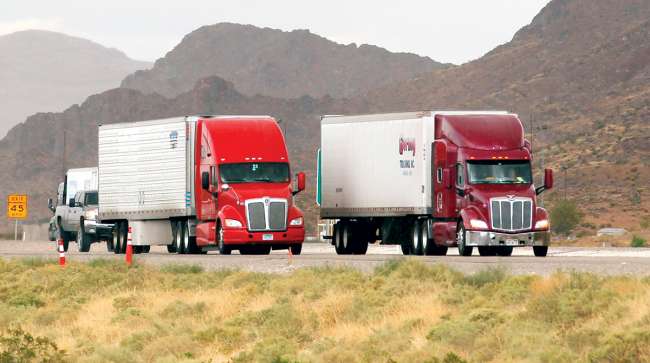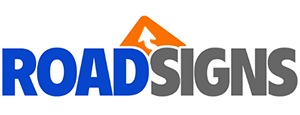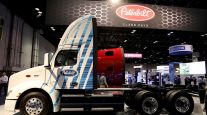Contributing Writer
Paccar Q4 Net Income Slips, but Annual Profit, Revenue Hit Records

[Stay on top of transportation news: Get TTNews in your inbox.]
While revenue and profits dipped in the fourth quarter, Paccar Inc. extended its streak of annual profitability to 81 consecutive years in 2019 as it posted records for net income and revenue.
“The U.S. economy performed well in 2019, which contributed to a strong truck market,” Paccar CEO Preston Feight said in a Jan. 28 conference call with industry analysts.
A combination of strong GDP and consumer spending growth in 2019 increased freight tonnage and spurred record Kenworth Truck Co. and Peterbilt Motors Co. truck deliveries, he added.
“We are performing at industry-leading levels,” Feight said.
Paccar’s North American medium- and heavy-duty truck brands include Kenworth and Peterbilt. Kenworth also is sold in South America. Its European-produced brand is DAF.
For the period ended Dec. 31, Paccar’s net income fell 8% to $531.3 million, or $1.53 per diluted share, from $578.1 million, or $1.65 per share, in the same period a year earlier. Q4 revenue dipped to $6.12 billion compared with $6.28 billion in same period a year earlier.
In part one of a two-part exploration of autonomous technology today, our latest RoadSigns podcast revisits conversations with CEOs Alex Rodrigues of Embark and Cetin Mericli of Locomation. Hear them explain what testing automated trucks and developing platooning technology has taught them about the road ahead — and get new perspective with host commentary. Listen to a snippet from Rodrigues above, and to hear the full episode, go to RoadSigns.TTNews.com.
For the year, Paccar logged record net income of $2.39 billion, a 9% increase, from $2.2 billion in profit from 2018. The company earned $6.87 per diluted share in 2019 compared with $6.24 per diluted share in the prior year.
Full-year revenue grew 9% to a record $25.6 billion from $23.5 billion in 2018.
The strong financial performance reflects “the company’s premium-quality products and services, strong global truck markets, record truck production and record aftermarket parts sales,” Feight said.
Feight said he expects 2020 to be another strong year because the North American and European economies are projected to continue growing. The U.S.-Mexico-Canada Agreement, approved by the U.S. Senate in January, also should help the economy and Paccar, he added.
Analysts from J.P. Morgan and Goldman Sachs both called the fourth-quarter results “solid.” The results generally beat Wall Street’s expectations, said Jerry Revich of Goldman Sachs. The only question mark was Paccar’s 14.4% gross margin, slightly lower than Revich’s estimate of 14.45%. Still the company’s gross profit margin is at the top for the industry, Feight said.
Strong performance in North America helped fuel profits. Paccar’s Kenworth and Peterbilt truck brands now account for 30% of the U.S. and Canada Class 8 retail sales market share, Siver said. The company has a 16.2% share of the European market. Paccar delivered a record 198,800 vehicles worldwide last year.
Paccar forecast a shrinking market for Class 8 retail sales for the U.S. and Canada this year. U.S. and Canada Class 8 truck industry retail sales are expected to slip to a range of 230,000-260,000 trucks in 2020, Paccar said. The industry sold 309,000 trucks in the region last year, the second highest tally ever.
Feight said he expects U.S. and Canadian deliveries to be 5% to 7% lower in the first quarter than the fourth quarter as the truck market eases. Motor carriers and other customers reduced their order pace over much of 2019, bringing the industry more into balance with its historical sales rates.

Feight
Parts continue to contribute to Paccar’s profits. Its aftermarket parts business posted fourth quarter pre-tax income of $205.2 million, 6% higher than the $193.8 million reached in the same period a year earlier. Quarterly revenue grew slightly to just under $1 billion.
The increasing slice of profits coming from parts sales will help balance any potential softness in truck revenue from the expected decline in vehicle deliveries, Feight said.
Its financing unit posted higher revenue but lower income in the fourth quarter. Paccar logged a Q4 2019 pretax income of $68.1 million, compared with $87.2 million in the fourth quarter of 2018. Fourth-quarter 2019 revenues were a record $406.3 million compared with $347.0 million in the same quarter of 2018.
The company expects to spend $310 to $340 million on research and development this year. All three brands are field testing battery-electric trucks with customers. Paccar expects to deliver production models in the next 12 to 18 months. Those are targeted for California and Europe, which have tighter environmental regulations than most of the U.S., Feight said.
“We will develop the best technologies with the highest performance,” he said.
Want more news? Listen to today's daily briefing:




